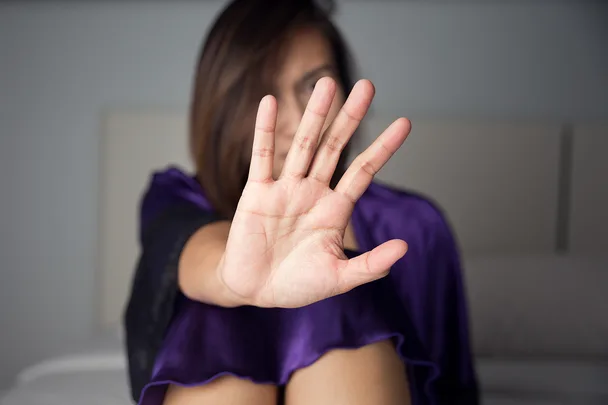My first words when I woke up this morning were, “who won?” to which my partner sleepily replied, “Croatia.” My heart sank. Not because I’m invested in the football World Cup, but because the first thought that came to mind was of all the women who would have gotten hurt last night.
Football has long been associated with violence, sexism and racism, but a few weeks ago, a viral campaign released by the UK’s National Centre for Domestic Violence highlighted the shocking rise in domestic violence when England loses a World Cup match.
Taking findings from a 2013 survey, which studied the 2002, 2006 and 2010 World Cup tournaments, it reported a 26% increase in reports of domestic abuse when England won or drew a game and a 38% increase when England lost.
That’s right, even when England wins, women lose.
Incidents reached their peak when England exited the tournament – which happened last night in the FIFA World Cup semi-final against Croatia.
Adrenaline combined with alcohol and a surge in testosterone levels (which some researchers have linked to aggressive behaviour) is a recipe for the perfect storm.
And while police and domestic violence charities would have been watching the game with bated breath, prepping for a rise in domestic abuse no matter the outcome, my thoughts were for the thousands of women frightened in their homes, knowing their abuser was heading home angry and likely drunk.
Of course, England isn’t alone in this. On average, Australian police deal with 5,000 domestic violence matters on every week. That’s one every two minutes.
Recent data, released by the New South Wales Bureau of Crime Statistics, revealed that on State of Origin game nights, there is a staggering 40.7% surge in domestic assaults in NSW. Increases in family violence have also been documented during the AFL Grand Final and Melbourne Cup.
In February, a landmark report from the Australian Institute of Health and Welfare revealed that one in six women (equating to 1.6 million women) and one in 16 men have experience psychical and/or sexual violence by a cohabitating partner since the age of 15.
Though football and alcohol may escalate behaviour, not all men who watch the World Cup will abuse their partners. Domestic violence is a choice perpetrators make.
And boys, if you can’t take the game for what it is – a game – don’t watch it.
For more support or more information, contact 1800 RESPECT on 1800 737 732 or Lifeline on 13 11 14.










